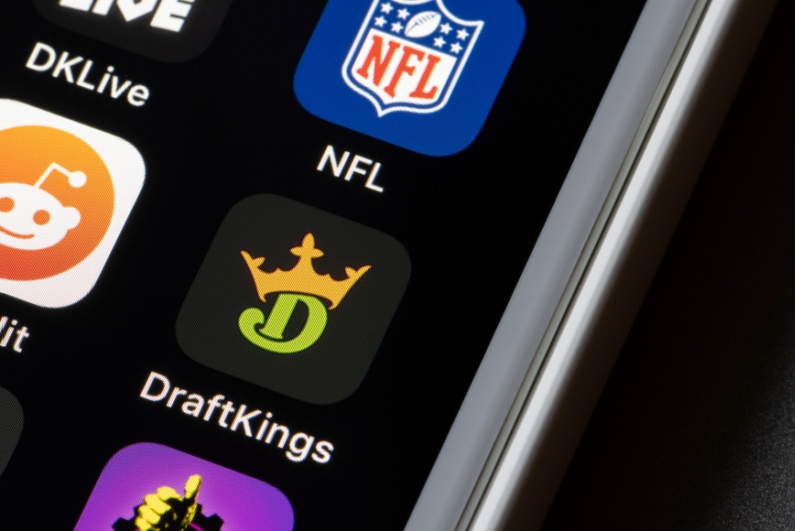Legalized sports betting, properly administered, unquestionably offers developing countries the chance to raise tax revenues. But if these countries are too greedy, they risk killing the golden goose. Throw in illegal broadcast streams, and the mix becomes even more toxic for both gamblers and sports betting companies.
There is a furor at the World Cup. But no, it doesn’t concern VAR and the highly dubious penalty Iran got or the equally dubious penalty Nigeria didn’t get. Nor are we talking about Diego Maradona’s charming and gentlemanly celebrations when Argentina scored the winner last night.
Instead, we’re talking about piracy.
The pundits will be concentrating on the battle for control of the midfield but, behind the scenes, there is a rather more serious battle being fought: the battle for control of broadcasting rights. And it is a battle that could ultimately have widespread implications for sports betting companies.
F1 and World Cup piracy
The controversy centers on the Middle East and North African (MENA) regions and illegal broadcasts by a pirate streaming service known as BeoutQ. The streaming service is illegally streaming both the World Cup and Formula 1 events, using a signal allegedly taken from BeIn Sport, the Qatar broadcaster that holds the exclusive Formula 1 rights for the MENA region.
Liberty Media, owner of F1, said that it took the infringement “extremely seriously” and would “take appropriate action.”
Illegal streaming services are almost ten a penny. They pop up and disappear regularly throughout the football season, and there cannot be many fans who have not accessed them at some time. Yes, I plead guilty. I watched one Wolves game last season with a Chinese commentary and spent another game trying to block ads for East European sex workers.
But the threat from BeoutQ appears rather more serious, with BeIn Sport accusing the pirate channel of having multi-million dollar ties to the Saudi Arabian government. Tom Keaveny, managing director of BeIn Sport, said: “The pirate channel BeoutQ is not a small outfit operating out of someone else’s bedroom. This is piracy on a massive commercial scale with multimillion dollar funding underpinning it.”
Both UEFA and FIFA, the European and world football governing bodies, have also condemned BeoutQ’s illegal coverage of the World Cup.
Why does this matter to sports betting companies?
It seems inevitable that the ties between the sports betting companies and the broadcasters will strengthen: As I wrote earlier this week, do not be surprised if the Qatar 2022 World Cup has an “official betting partner.”
What’s significant about the BeoutQ controversy is the region it covers. A story on the BBC yesterday highlighted the rapid expansion of the gambling market in one African country, Kenya, and there is no doubt at all that the MENA region represents a huge potential market for sports betting companies.
But governments will want a piece of the action
In Kenya, the government is worried about problem gambling: According to the BBC story, 78% of university students are problem gamblers.
In order to deter people from gambling, the government has introduced some taxes. The first, which came into effect in January, means that betting firms must hand over 35% of their profits. The second, due to be introduced soon, will see gamblers face a 20% tax on their winnings. A Kenyan treasury official said: “The government is worried about rampant betting, which is why we are putting [these] measures in place.”
(Don’t think measures like these are confined to the MENA region: With the legalization of sports betting going ahead in many US states, Rhode Island legislators have rushed to the trough by deciding to take 51% of the revenue from legalized sports betting.)
“We hope this will lower the appetite for betting,” said Kenya’s treasury spokesman.
What do you think? Why be a legal bookmaker and pay a 35% tax on your profits? Why bet with a legal bookmaker and pay a 20% tax on your winnings? The more governments seek to tax betting, the more they will drive it back underground.
Greed and piracy
The greed of legislators, coupled with the destabilizing effect of illegal streaming, could have a big impact on both the profitability of the online betting companies and the safety of gamblers.
Clearly, legitimate sports betting companies do not have the option of going underground but, if governments and legislators seek to take too big a slice of gambling revenues and/or profits, betting will ultimately be forced underground again. Sport Pesa has already pulled out of Kenya and canceled all their sponsorships in the country because of the 35% betting tax.
And, the more betting goes underground, the less protection problem gamblers will have. We may have documented some of the failings of the online betting companies in these columns, but properly legislated companies afford problem gamblers some protection. Underground bookmakers offer them none.
Throw in illegal streams from pirate broadcasters, and the mix becomes even more toxic. The one thing sports betting companies need in a broadcaster is reliability. Gamblers will rapidly lose confidence if a stream appears to be delayed – you cannot bet on a game if someone else already knows the result – or if it is constantly interrupted.
So it is not enough for legislators to simply see legalized sports betting and the sports betting companies as a golden goose that will supply an endless stream of cash. The legislators have to play their part too, by creating a fair taxation system, and by ensuring that the broadcasts of sporting events can be relied on.



